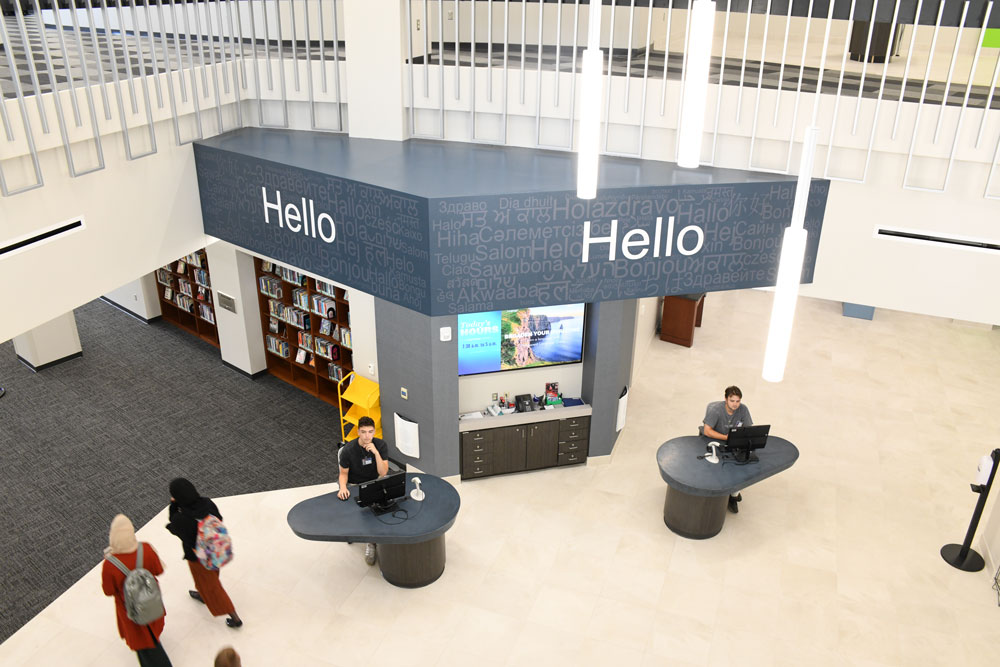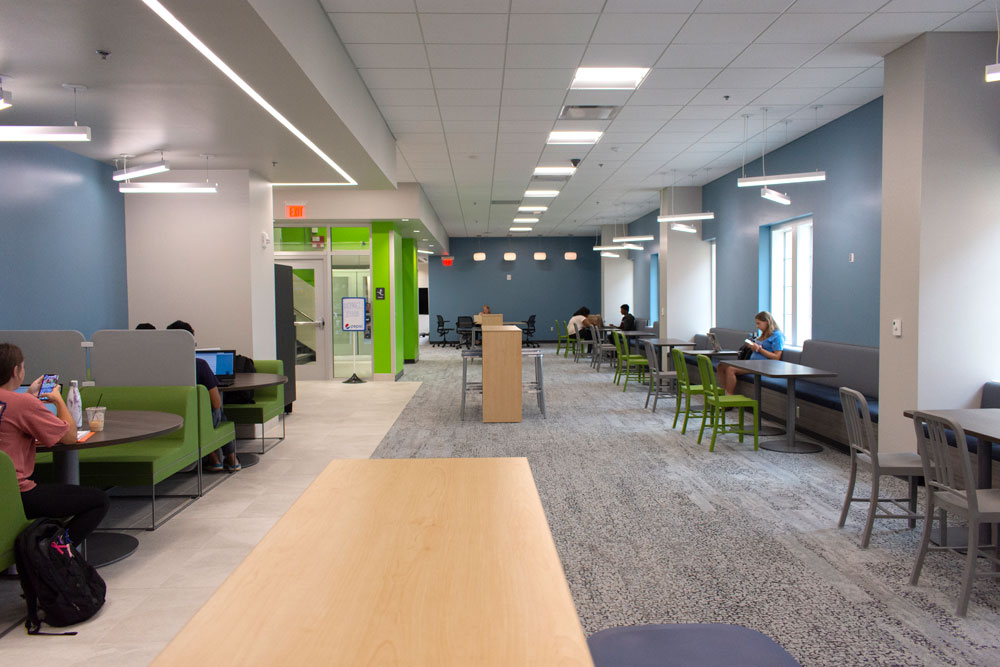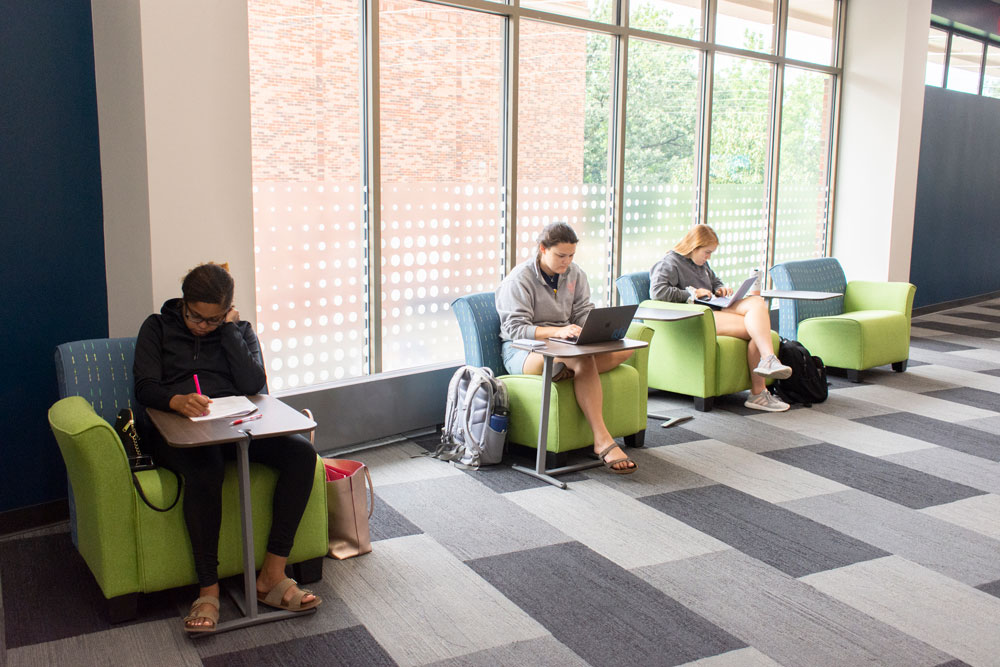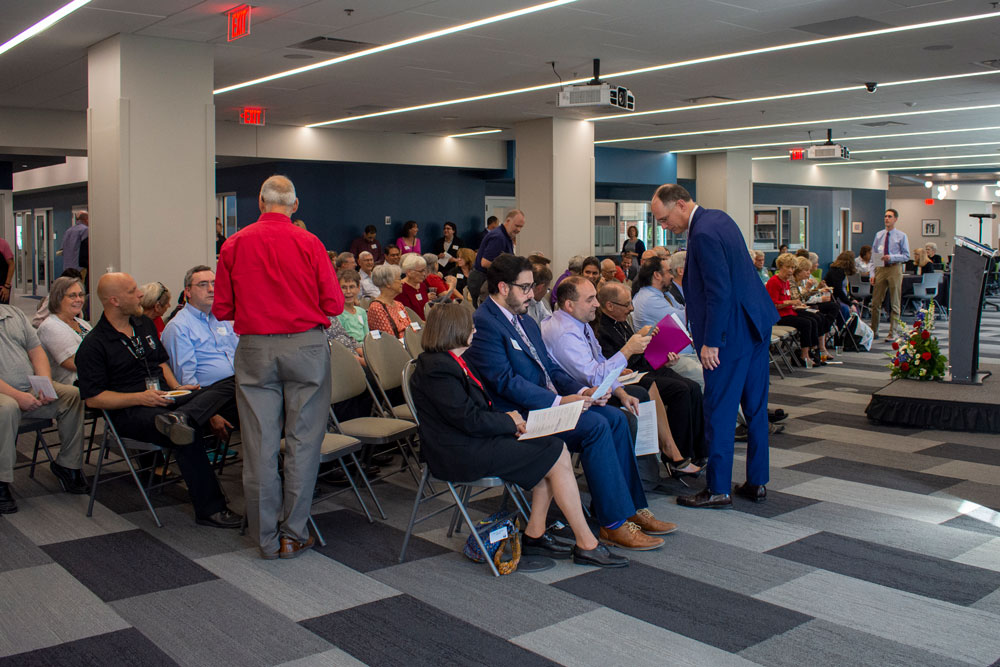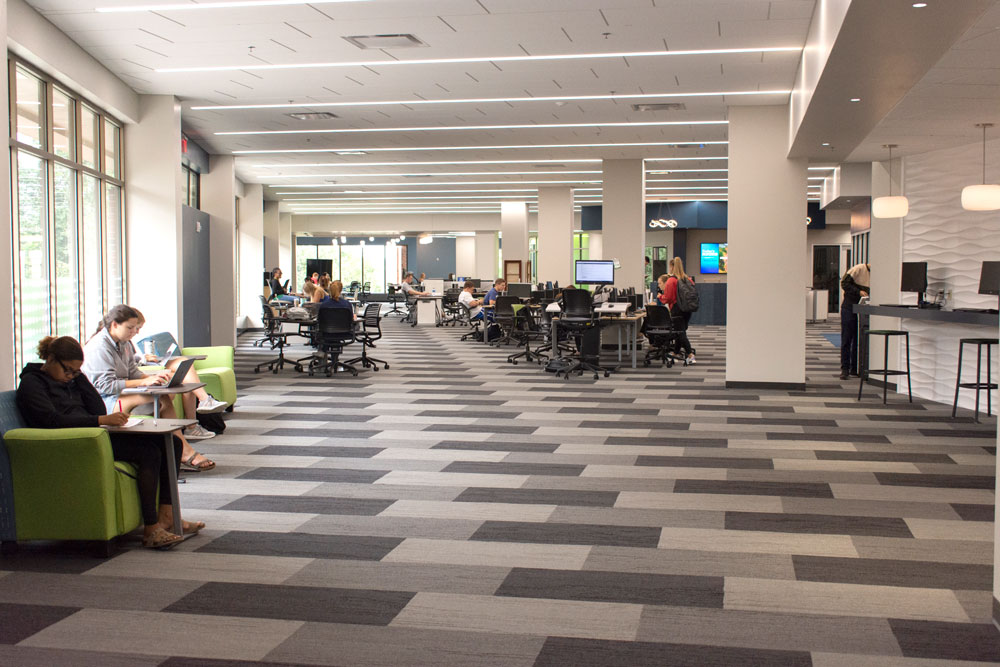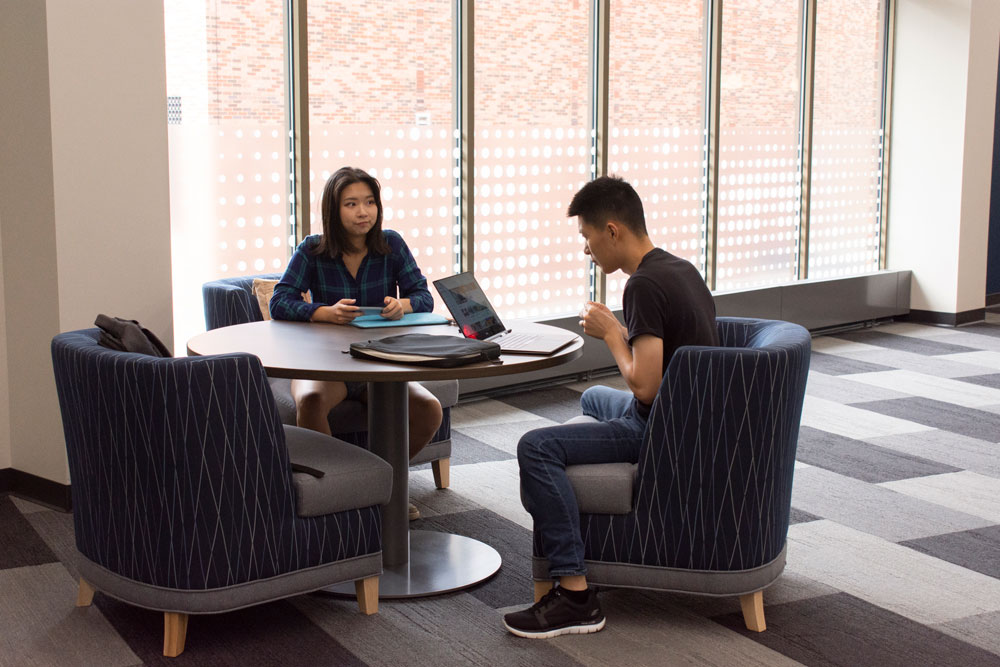Connection, interaction, inspiration — our Roesch Library
Good afternoon. It is a great honor and particular pleasure to join President Eric Spina and Dean Kathy Webb in celebrating the completion of the “Roesch Refresh.”
Let me begin by thanking Kathy Webb and her entire faculty and staff; the faculty and students outside the Libraries who consulted on this project; the Libraries Advisory Council; Rick Krysiak, Anna Hedley, and the entire Facilities team; Matt Franklin and the architectural team at Levin Porter, along with our contractors; Andy Horner and the Finance team; and President Eric Spina and our board of trustees for the vision, strategic thinking, planning, design, construction and financial resources that made this project possible. This was a complex project to execute across a two-year period when the University was in session and Roesch Library continued to be in active use. The stresses, strains, problems and sheer inconvenience that attach to a project like this cannot be overstated. However, the beauty, elegance, creativity, utility and far-reaching potential of this project are testaments to everyone’s hard work, collaboration and perseverance. I could not be more grateful. Particular thanks are owed to Dean Kathy Webb for her leadership. Kathy probably feels as though she has lived an extra lifetime over the past four years.
If you are like me, many of your initial intellectual, creative and educational passions emerged or advanced in conjunction with libraries. Without the presence of libraries, university campuses would be much less interesting to me and much less dynamic. Shelby Foote, the late American Civil War historian and novelist, once quipped, “A university is just a group of buildings gathered around a library.” Libraries are places in which we can count on the interaction of people, language, thought, intention, perception and feeling — interactions that cut across and weave through space, time, culture, perspective, tradition and native tongues. Libraries are sometimes defined as containers, as places that hold collections of materials of various types. As important as that is, libraries are so much more than that. Libraries are nodes of connection, interaction and inspiration. They are intersections, crossroads, meeting and gathering places for people, for languages, for ideas, for symbolically encoded human expression.
There are many famous quips about the unique power and significance of libraries. Many are well familiar to you. But I feel compelled to bring some of them back to our conscious awareness on an occasion such as this.
On the wall of one of my favorite public libraries, in Princeton, New Jersey, the following words of Argentinian writer Jorge Luis Borges are inscribed: “I have always imagined that Paradise will be a kind of library” — a statement that says as much about libraries as it does about the hereafter.
On the wall of the former Hauer Music building on Patterson Boulevard that housed some of the downtown Dayton Metro Library’s holdings during construction of its magnificent new building, Rita Mae Brown’s words are highlighted: “When I got my library card, that’s when my life began.”
Susan Sontag, literary theorist and critic, famous for the scale of her personal library of over 20,000 volumes, once remarked, “My library is an archive of my longings.”
And Albert Einstein is purported to have said, “The only thing that you absolutely have to know is the location of the library.”
For me, the two most exciting features of the renovations of Roesch Library are, first, that these renovations reflect the growing demand for library space and for a wider range of purposes for library use among our students, faculty and staff. I remember some of the University’s trustees asking 20 years ago, as digital resources were beginning to expand exponentially, why there would be any need in the future for physical libraries. The interest of the UD community in library space and in library resources (both in print and in digital form) provides the living answer to that question.
Second, these renovations are exciting for the new ways in which they imagine the academic and educational activities that libraries can facilitate. Simply consider The Dialogue Zone, the Scholars Commons, the Collab, Concourse D, and all of the other innovative spaces in Roesch Library. True, traditionalists who would only want to see libraries as sites of preservation for holdings and quiet contemplation — and there is still much square footage in Roesch Library devoted to just such valuable purposes — may be dismayed to see so much human interaction and creative activity on the first two floors of Roesch, in the absence of many bound, print volumes. Yet, for me, one of the greatest, most exciting potentialities of libraries is their capacity not only to preserve and thereby transmit the printed (or otherwise encoded) legacies of human thought, experience, imagination, and will, but their ability to stimulate intellectual community, especially in the face of the tensions, disagreements, misunderstandings, and contradictions among what human beings have thought, felt, imagined, valued and committed to writing.
On this point, the incisive comedian Paula Poundstone has much wisdom to offer when she ways, “The truth is libraries are raucous clubhouses for free speech, controversy and community.”
One final comment: Special occasions such as this remind us of something we should be grateful for each and every day in our university lives, namely, the professionalism, knowledge, helpfulness and collegiality of our library faculty and staff, whose every intention is to support the educational, scholarly, research and community-building aims of the rest of our campus. When we consider who on our campus leads by serving, we should always be sure to place our library faculty and staff high on our lists.
And so let us celebrate, with gratitude and delight, the Roesch Refresh; let us celebrate the time-honored as well as the newly emerging purposes of libraries; and let us celebrate librarians. Congratulations, once more, to everyone who had a hand in this magnificent project.
